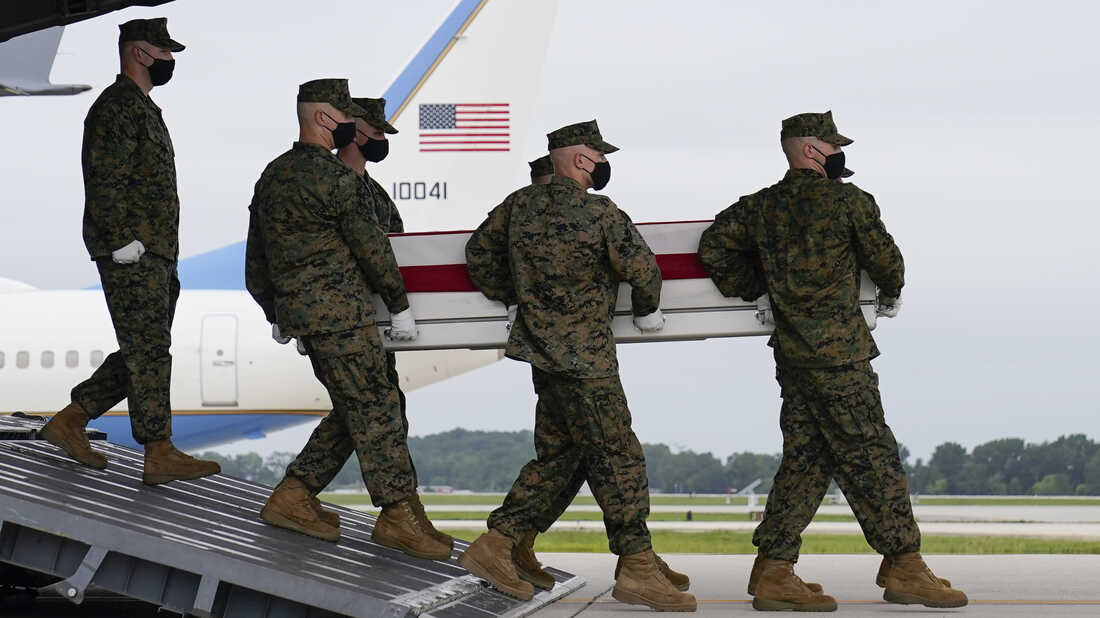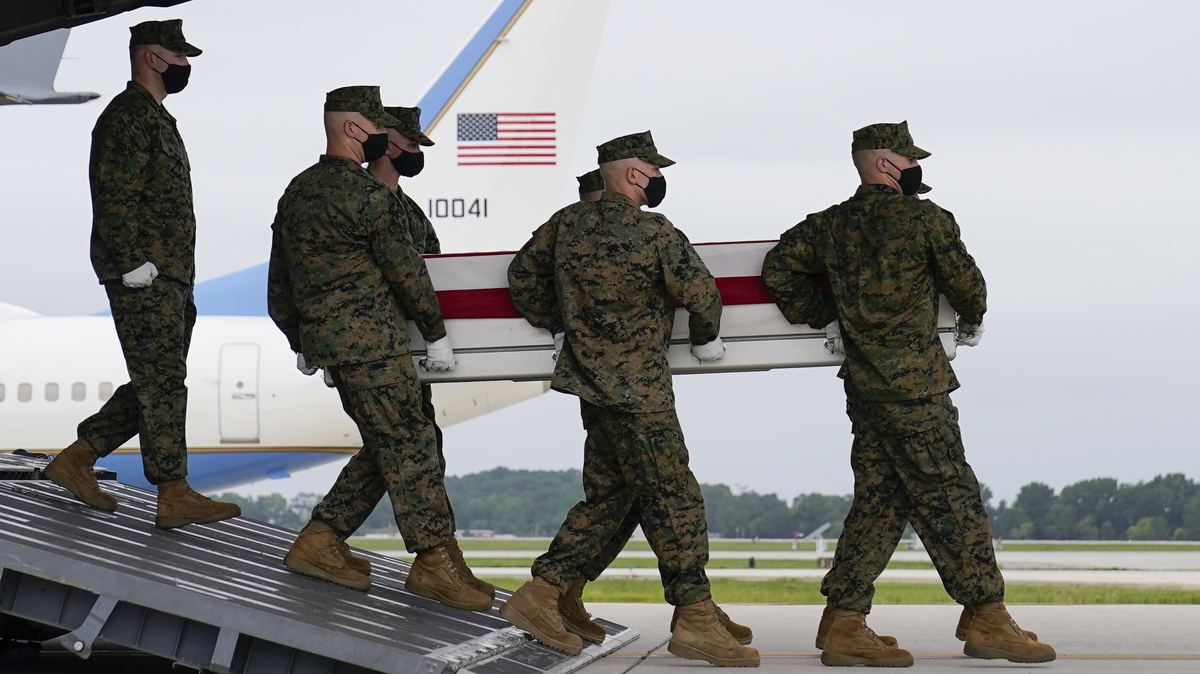
A carry team moves a transfer case containing the remains of Marine Corps Lance Cpl. Jared M. Schmitz during a casualty return on Sunday at Dover Air Force Base, Del. Carolyn Kaster/AP hide caption

A carry team moves a transfer case containing the remains of Marine Corps Lance Cpl. Jared M. Schmitz during a casualty return on Sunday at Dover Air Force Base, Del.
Carolyn Kaster/APThe U.S. military's mission in Afghanistan is over. For many still living in the country, a new struggle has begun: how to move forward after they were not able to make it before the U.S. withdrawal.
Mark Schmitz is also grappling with how to move forward. His 20-year-old son, Jared, was one of 13 U.S. service members killed in an attack on the Kabul airport. Schmitz spoke to NPR's Rachel Martin — his interview was produced and edited by the staff of NPR's Morning Edition, where it originally aired. More from the interview here.
Email us at
This episode was produced by Nina Kravinsky, Monika Evstatieva, Lauren Hodges, Vincent Acovino, Jonaki Mehta, and Brent Baughman. It was edited by Scott Saloway, Patrick Jarenwattananon, Justine Kenin, Brianna Scott, and Fatma Tanis. Our executive producer is Cara Tallo.

 Live Radio
Live Radio